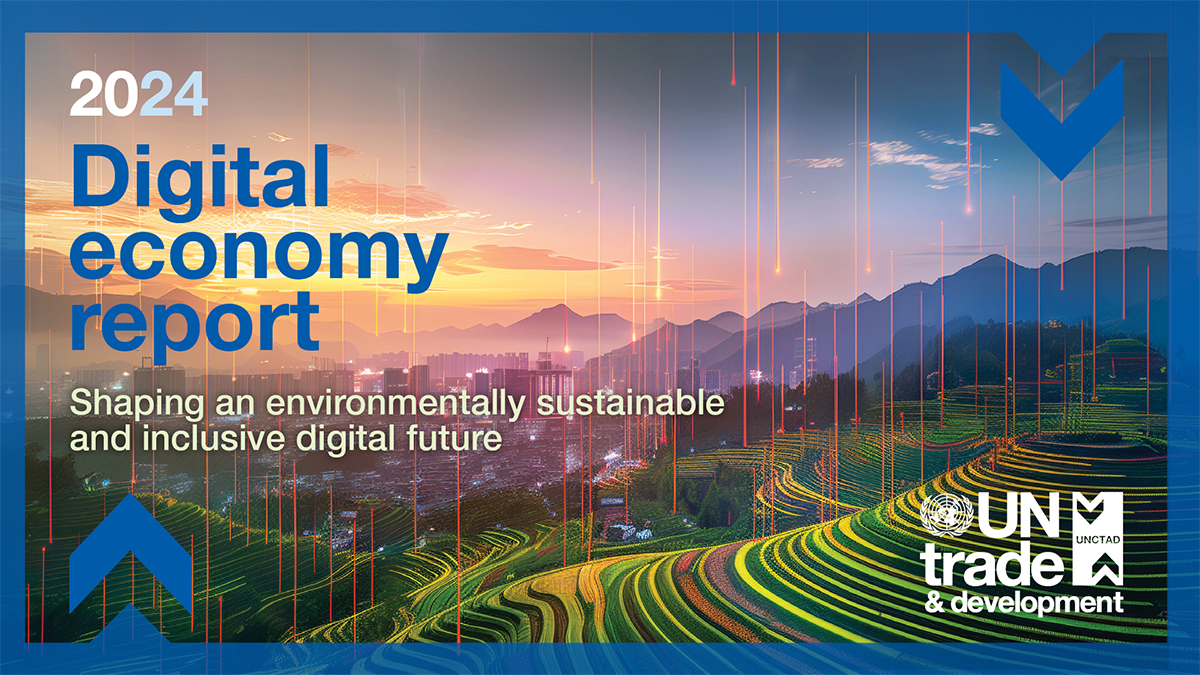The Digital Economy Report series monitors trends and policies related to access, use and impact of digital technologies from a development perspective.
The Digital Economy Report 2024 turns attention to the environmental footprint of digitalization. The topic is timely, not to say overdue. Digital transformation is taking place in parallel with growing concerns related to the depletion of raw materials, water stress, air quality, pollution and waste generation, which are all linked to planetary boundaries, including climate change.
The rapid pace and expanding scope of digitalization make it increasingly important to understand its relationship with environmental sustainability. Many more people are expected to come online, and emerging digital technologies are only in their infancy. How digital transformation is managed will greatly influence the future of humanity and the health of the planet.
In the report, the discussion centres on environmental impacts along the life cycle of digital devices and information and communications technology infrastructure and how to reduce the sector’s environmental footprint. The report also includes a dedicated discussion on e-commerce.
The Digital Economy Report 2024 underlines the need to maximize the positive impact of digitalization, while minimizing the negative impacts on environmental sustainability. In this context, moving towards a digitalization that is more environmentally sustainable requires reducing unsustainable practices along its life cycle. It calls urgently for a change in mindset. The current linear economy model increasingly needs to be replaced by a circular economy model, based on the main principles of reducing, reusing and recycling, that favours reduced consumption and more materials recovery.



